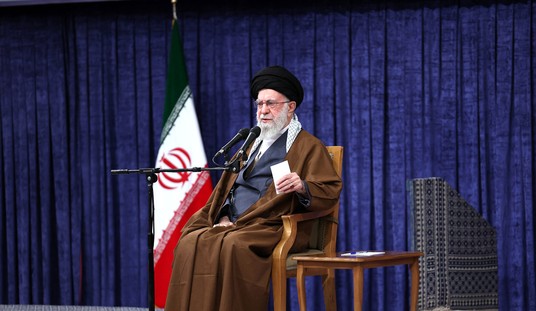National Review Online has an interview with Fred Siegel on Rudy Giuliani. Siegel has just written a new book titled The Prince Of The City: Giuliani, New York And The Genius Of American Life. (Full disclosure: his son Harry edits The New Partisan, where I contribute from time to time):
NRO: You refer to Gotham as a once-great city. It’s not anymore? Who do we blame?Siegel: When I refer to once-great, I’m talking about the early 1990s when under Mayor David Dinkins there were six murders a day, Gotham with 3 percent of the country’s population had lost 25 percent of the jobs eliminated in the recession, 60 percent of the city population wanted to leave, it seemed the underclass had won, and just asking for a cup of coffee at a luncheonette could get you a fat lip. And if that weren’t bad enough when a cop tangled with a drug dealer setting off a riot by drug dealers in Washington Heights, Mayor Dinkins sided with the drug dealer. You can’t make this up
NRO: If you had to explain the Rudy crime cleanup to the uninitiated, what would be the basic sum-up?
Siegel: Giuliani’s extraordinary success in reducing crime was based on one key insight and one key innovation. The first embodied in “Broken Windows” policing is that if you police the small crime you’ll also capture the big criminals. When the city cracked down on people who jumped the subway turnstiles they found that one in seven had an outstanding felony warrant or a weapon. Then what kept the success going was COMPSTAT, the computer mapping of the daily crime reports. In the bad old days, statistics were egghead stuff the police looked at six months after the fact. But now the police used up-to-the minute statistics to map their tactics on a day-to-day basis. That meant that if there were a lot of drug arrests on Avenue B in the East Village on Monday, the police were ready on Tuesday to move on Avenues A and C where the dealers were likely to have moved.
NRO: How damaging were scandals like the Abner Louima case to Rudy, the NYPD, the city?
Siegel: In the long run, the scandals didn’t have a marked effect. But they did produce an hysteria that led upstanding liberals to insist that they were more afraid of the NYPD than they were of criminals
NRO: Did David Dinkins REALLY dismiss crime reduction by saying, “[T]here was no crime in Nazi Germany?”
Siegel: Yes, Dinkins believed in the “root causes theory of crime.” He didn’t think that the police could have much effect, so when embarrassed by Giuliani’s successes in not only reducing crime but reducing police violence as well, he responded with hyperbole
NRO: What’s a “hard-edged moderate”?
Siegel: A “hard-edged moderate” (or immoderate centrist, and angry optimist as I sometimes describe him) is a man of sharply contradictory characteristics. Giuliani, for instance is a self-promoting, self-absorbed man who made his own enormous ego serve the city’s well being. He ran his government with a Kennedy-like band-of-brothers assumption that those outside his circle couldn’t be trusted. But he placed this tribal ethos in the service of universal ideals that transcended the traditional parochialism of New York’s ethnic politics. He was the traditionalist who promoted the virtues of service, duty, and hard work so evident on 9/11, but he was sometimes unable to honor those values in his personal life.”
NRO: Could Rudy have made it as a Mets fan?
Siegel: Never, a guy like Giuliani who kept score, pitch by pitch, as if he was managing the Yankees, would have been driven mad by the Mets’ sloppy play.
NRO: Why can’t I help but call him Rudy?
Siegel: Like great mayors before him, Giuliani was a larger-than-life figure. When he entered a room his fans would shout ROOODEE, ROOODEE, as if he were coming to bat.
Read the rest for Seigel’s thoughts on whether or not Rudy will be coming to bat in 2008.










Join the conversation as a VIP Member